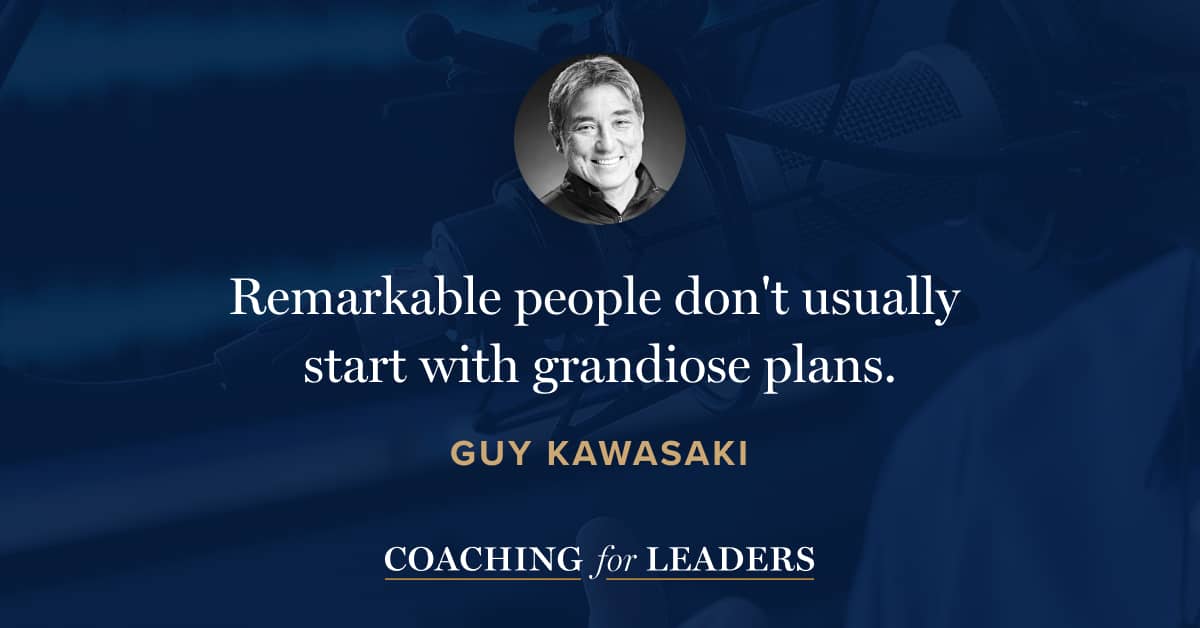Guy Kawasaki: Think Remarkable
Guy Kawasaki is the chief evangelist of Canva and the creator of Guy Kawasaki’s Remarkable People podcast. He is an executive fellow of the Haas School of Business (UC Berkeley), and adjunct professor at the University of New South Wales.
He was the chief evangelist of Apple and a trustee of the Wikimedia Foundation. He has written Wise Guy, The Art of the Start 2.0, The Art of Social Media, Enchantment, and eleven other books. He's now the author of Think Remarkable: 9 Paths to Transform Your Life and Make a Difference.
We all want to be surrounded by remarkable people in our work. A key piece to building relationships with them is recognizing when they come across our radar screens. In this conversation, Guy and I explore some of the key indicators for recognizing remarkable people.
Key Points
- Remarkable people reflect back to childhood. They recognize the experiences and people that contributed to their success.
- Remarkable people don’t find their passions, they develop them. They know that it’s rarely love at first sight.
- Remarkable people aren’t trying to save the world. They start with small and simple questions that scratch an itch.
- Remarkable people make themselves indispensable. They do the work nobody else wants to do which separates them from the pack.
- Remarkable people interact with a diverse group of people. They want to hear different perspectives and recognize the diversity makes them better.
- Remarkable people have overcome hardships. They’ve challenged themselves to find paths forward through the toughest situations.
Resources Mentioned
Interview Notes
Download my interview notes in PDF format (free membership required).
Related Episodes
- How to Lead and Retain High Performers, with Ruth Gotian (episode 567)
- How to Strengthen Your Network, with Marissa King (episode 525)
- Help Your Team Embrace Growth Mindset, with Eduardo Briceño (episode 644)
Discover More
Activate your free membership for full access to the entire library of interviews since 2011, searchable by topic. To accelerate your learning, uncover more inside Coaching for Leaders Plus.





